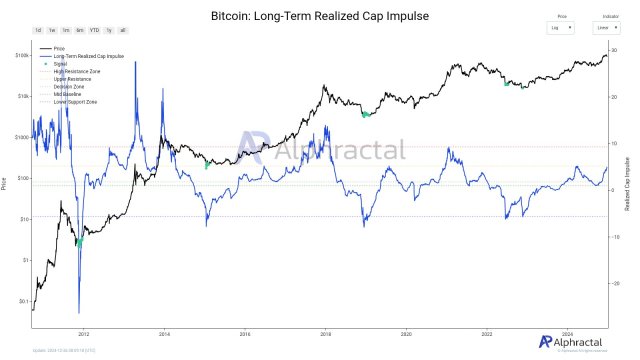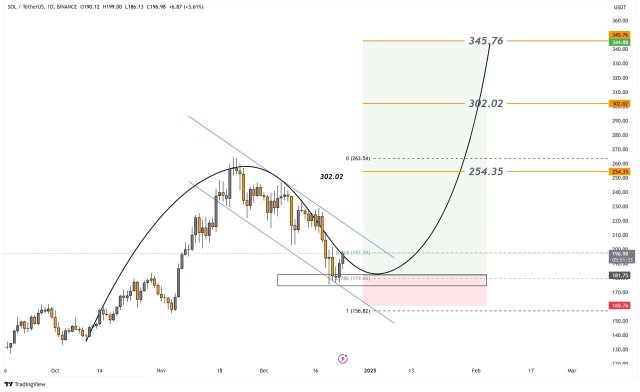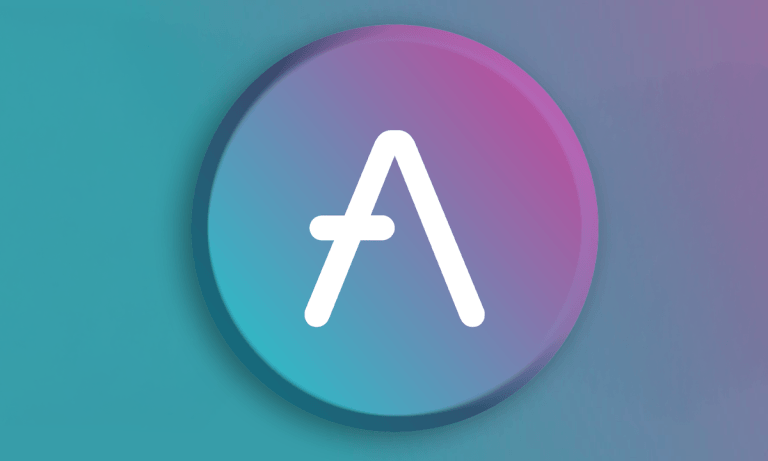
Cointelegraph spoke to the co-founders of NFT storytelling project Jenkins the Valet for insight into the character's debut novel and vision for the future.
“My mom cried when I got the job as valet at the Bored Ape Yacht Club, one of the preeminent social clubs for apes. She hooted and grunted and peeled open one of our finest bananas. "Jenkins," she said, "you’re going to rub shoulders with some of the finest apes from around the world." I rolled my eyes. She had a knack for embellishment, and I was only going to be a valet, after all.”
Jenkins the Valet is a wide-eyed, brown-furred service ape rather ordinary in appearance, but in the attire of his work vest and Irish boho hat, widely regarded as a diligent professional, true embodiment of discretion and perhaps one the most boring apes in the Bored Ape Yacht Club (BAYC) universe.
While originating as another token in the BAYC, Jenkins has since evolved into a project and story, in and of itself. Jenkins is voiced across various platforms by an anonymous individual who studied creative writing at college and spent the last six years working as a product manager for a large consumer technology company. Jenkins partner, Safa, is a self-described serial entrepreneur, and has a full-stack marketing background and runs his own creative agency.
Six months ago, Jenkins revealed his affiliation for storytelling, and in doing so, his intentions to reveal unfathomable secrets, first-hand accounts, and quite possibly, suspicious criminal activity within the Bored Ape Yacht Club.
In the words of Jenkins himself, "Hell, I even killed a man."

Jenkins the Valet: The Writer’s Room is a collection of 6,942 nonfungible tokens (NFT’s) that serve as virtual compasses to the creative direction of Jenkins metaverse tales, the first of which will be a full-length fictional novel, supported by global talent agency Creative Artists Agency, and written by New York Times best-selling author, Neil Strauss.
Categorized into four tiers, Writer’s Room NFT’s ascend in voting power from the lowest-value Valet Ticket with five votes, to the Yacht Key and Valet Stand, which hold 10 and 50 votes, respectively, through to the premium WAGMI yacht, which grants 215 votes.
These owners are designated exclusive chairs at the table in Jenkins' illustrious Writers’ Room, a phrase synonymous within the filmmaking industry, but here in Web 3.0, represents a digital portal to facilitate questions and proposals posed by Strauss and fellow community members on the genre, plot, characters and general concept of the narrative.
Character participation within the novel will range from a simple acknowledgment to a main character feature, depending on their asset's level.
Once the book is published, licensors will be entitled to 50% of net profits from all forms of distribution, including the NFT book’s primary sale, commissions from the secondary marketplace and royalties from physical sales as well as film and television adaptions of the work.
Overseen by metaverse firm Tally Labs, the project is supported by a six-team advisory board that includes Fractional founder Andy Chorlian, Redbeard Ventures founder Drew Austin and investor Gmoney.
Throughout Cointelegraph's conversation with Jenkins and Safa, it was clear that the pair view this project as a propitious intersection of their respective interests, skillsets and career backgrounds, and as such, signifies the pinnacle of their creative endeavours until this point.
This Zoom interview has been slightly adjusted for clarity, and condensed to suit reading constraints.
.@jenkinsthevalet x @Cointelegraph
— Jenkins The Valet (@jenkinsthevalet) December 1, 2021
Probably nothing. Soon. pic.twitter.com/LNyY1zNVPt
Cointelegraph: Jenkins, Safa, thanks for joining us today. First of all, can you tell us your current roles within the Jenkins project, and what does that entail day-to-day?
Safa: We both wear a ton of hats, but generally anything tech-related goes to Jenkins. This is as well as writing, the voice of the character that you see on socials and Town Halls, and the overseeing of our entire development team.
I do a lot of the marketing, social media strategy, finance and operations. We both do community management. Honestly, aside from tech, we both overlap quite a bit.
Jenkins: There’s one other thing that I would say that you do (Safa) that I think is really important. You gave me credit for the Jenkins voice, but you have built the Jenkins brand, and you spend a lot of time thinking about the way the project is perceived by others. I think that’s something our community, and the community at large really admires about our project.
Jenkins cites the physical valet stand displayed at NFT NYC last month as a prime example of how Safa’s branding experience enabled them to converge their social audience to a physical monument, and how that was appreciated by the community.
S: From running an agency, I have a lot of experience working with clients and designers overseeing visual and brand identities, and so we’ve tried to treat Jenkins that way. Not just visually, but in our messaging, how we look, feel, the pillars that we’re built on, and what the community can expect. It’s all been very intentional on our end.
CT: Let’s talk about Creative Artists Agency. How do you expect them to support the project’s vision and propel the Jenkins brand to a wider audience?
S: It’s almost impossible to put into words. Their job as an agency is to represent storytellers. As a business, they have grown through many different eras of creation and distribution, and this is something that they view as the next frontier.
They see us in the same way as their directors, artists, actors and people who are telling great stories, but they also recognize how different a world we’re playing in, and they trust us to operate in that way.
Principles that hold for traditional entertainment and distribution don’t hold here. Everything that happens in the NFT and the Web 3.0 space is community first. We don’t have customers, we have partners, collaborators and community members.
Creative Artists Agency will be our liaison into every corner of the traditional world in terms of movies, film, TV, podcast, animation. And it’s already started. As focused as we are on making book one, projects two and three and their own forms of media are already underway.
J: I don’t think we see book one as being the first in a series in the way the first Harry Potter book ends with his first year at Hogwarts, and then the second book is his second year.
We have two thoughts on how this book can impact future media. First, if the book can stand-alone as a really great work, then we could make direct derivates in other formats like film or animation.
The other is that this book will introduce people to Jenkins in a larger format than we’ve already done (shorter stories on Twitter). Simply by having a work by Jenkins out in the world, we think that it will guide us into other forms of content that wouldn’t necessarily be sequential in plot but would utilize the brand.
This is a bit of a funny analogy, but I think something like Scooby Doo where the characters and theme may be similar, but what happened last time doesn’t necessarily matter for what happens next time, except for the fact that you know a little more about who the characters are.

CT: Moving onto Neil Strauss. What was his initial receptiveness to the Jenkins project, and has he provided any insights into what’s intrigued him, stories which have stood out in his research, or possible questions for the community portal?
S: Neil is native to the space, so immediately understood it, which was super cool.
On gaining assurance that they’ve made the right decision in choosing Strauss, Safa tells the story of when someone asked Neil how he feels about writing fiction, to which he responded: “I’m not writing fiction, I’m writing a memoir on Jenkins the Valet.”
J: Right now, Neil is just trying to wrap his head around the space, our community and who Jenkins the character is. Once we begin licensing characters and he is provided new context, it will give him more space to ask new questions to the group.
But Neil doesn’t need every character to start writing background, setting and things like that. The idea is that Neil would write a bit, and then people would get to read what he’s written, which in turn could trigger new proposals or votes.
CT: In terms of submitting proposals, does that cost one of your voting rights?
J: No. The voting power is applied to every single proposal. If you have a ticket, you can apply five votes to every single option. So, you don’t lose votes, and submitting proposals doesn’t cost you anything.
CT: Would you ever consider the idea of granting additional voting rights to people whose proposal submissions are successful?
S: We’ve played with the idea of — and this wouldn’t be the official term — “reputation scores” where we’re able to evaluate how many times people have voted, not necessarily correctly, but on the side of the winning choice. We hadn’t thought to integrate proposals being successful, which is an interesting one.
After months of work, we are LIVE with the Writer’s Room.
— Jenkins The Valet (@jenkinsthevalet) November 28, 2021
This is a custom Web3 application where you can vote on the outcomes of our content, license your Apes to earn royalties, and partner up to license other people’s Apes.
Check it out HERE : https://t.co/2VYlQQiwnE pic.twitter.com/E1g7SdV5Wd
CT: What are your expectations for the community portal?
S: Had we decided to do something way less ambitious, we’d have probably launched already and started writing. We’ve seen a few other projects happening on Discord, but we felt that we needed a really integrated portal to house this project, which would yield the best experience.
The portal is going to be industry leader, the best in class. I don’t think we’ve seen anything like it in the space, and so we’re excited to share it with the world. We’re definitely going to open-source our licensing agreement, and we might even open-source the portal down the line.
CT: How will the licensing model operate, and how will this impact the process of writing?
J: When you licence an avatar to the book and sign the licensing agreement, an optional form pops up that allows you to give us a name and backstory of your character. After a couple of weeks, we’re going to have a map of licensed avatars, their names and backstories.
We can then query the database and maybe see that there are six astronauts, some mutants with similar traits, three people who are part of the ape mafia. Once you have all that, it becomes much easier to imagine what the story could become.
CT: Looking ahead to the Jenkins Roadmap 2.0. How are you envisioning that experience for Jenkins NFT holders?
S: Roadmap 2.0 will be kicked off by the book one NFT sale. We believe that by then, Writers’ Room NFT’s will have increased in value and book one will represent a lower entry point for more people entering the ecosystem, similar to what Mutants did for BAYC.
J: We’ve said publicly that Roadmap 2.0 will have a bit of game theory. Books will be able to be burned or held, which will kick off a series of options for holders with different utility, depending on which direction you take it.
Sorry that it’s cryptic, but this has been an incredibly well thought-out and strategic project. We’ve been deliberate about dropping Easter eggs for a very long time, and so there are a lot of disparate things that we’ve put out that will come together to explain different aspects of Roadmap 2.0.
Honestly, we’re really proud of that and excited for people to start making connections and discovering the clues. We’ve had a few conversations with community members where someone has said I saw this and this and this, and I think they’re going to come together in this way. And the two are us are like damn, they’re on it!

CT: Wen DAO?
S: I don’t know that everyone will take the time to be deliberate in building DAOs [decentralized autonomous organizations] in a structurally compliant way, but that’s what we’re doing. We’re surveying multiple top blockchain law firms that have worked with some of the biggest crypto native companies, and planning out the vision with them.
We’ll be pursuing that route so we can bring our community with us as we grow. That’s a core thesis of the Writer’s Room and we think DAOs are a good way to accomplish that.
CT: And finally, what does the future of Jenkins the Valet look like?
J: Our ambition is to create a decentralized Web 3.0 content company where the lines are blurred between what it means to be a consumer and a contributor.
We believe that we are building an infrastructure, brand and character where our community are also creators and participators in a content company that the two of us, at least, think that we’re going to work on for decades.

You can get bonuses upto $100 FREE BONUS when you:
💰 Install these recommended apps:
💲 SocialGood - 100% Crypto Back on Everyday Shopping
💲 xPortal - The DeFi For The Next Billion
💲 CryptoTab Browser - Lightweight, fast, and ready to mine!
💰 Register on these recommended exchanges:
🟡 Binance🟡 Bitfinex🟡 Bitmart🟡 Bittrex🟡 Bitget
🟡 CoinEx🟡 Crypto.com🟡 Gate.io🟡 Huobi🟡 Kucoin.




















Comments